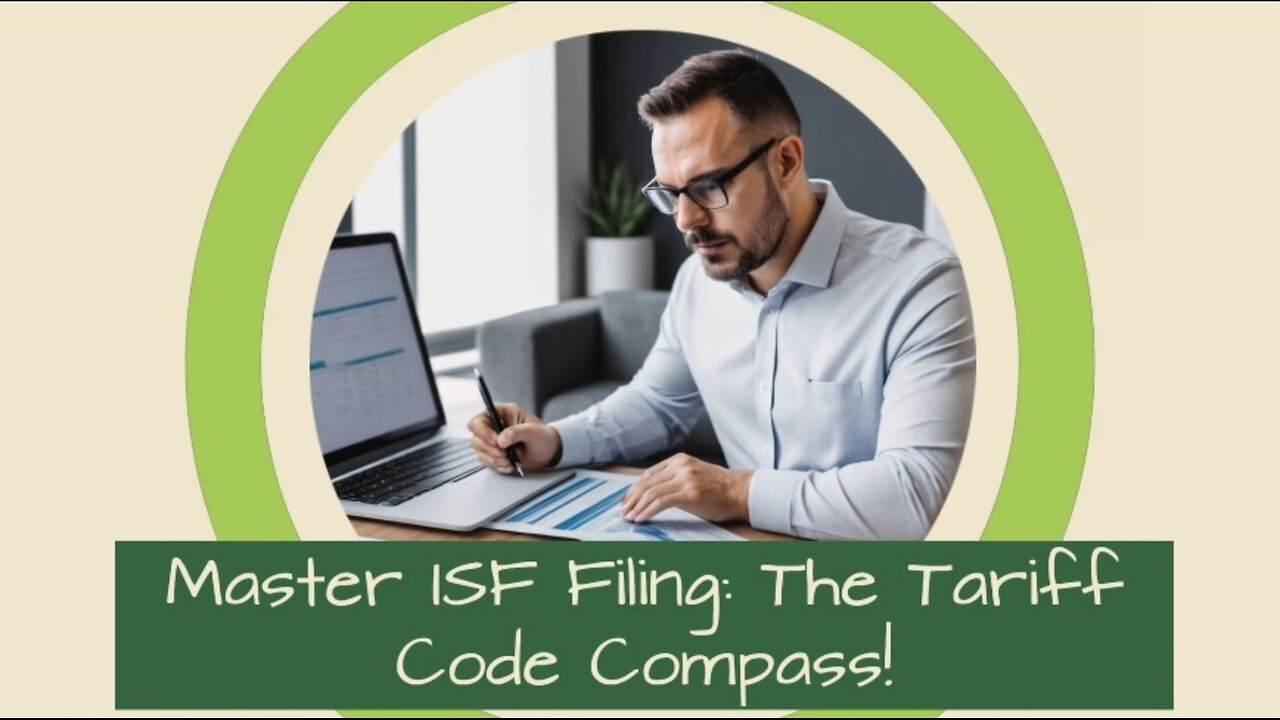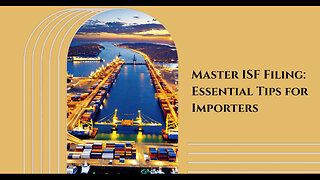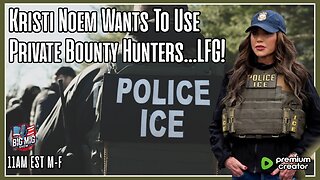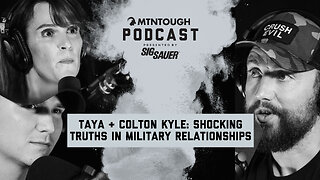Premium Only Content

Demystifying Tariff Codes: Ensuring Accurate ISF Filings in Customs Brokerage
ISF Depot // 661-246-8217 // [email protected] // www.isfdepot.com
In today's episode of our Customs Brokerage series, we will be exploring the critical role that tariff codes play in ensuring accurate Importer Security Filing (ISF) and customs brokerage. Tariff codes, also known as Harmonized System (HS) codes, are internationally recognized standards for classifying products in international trade. These codes are of utmost importance as they determine the amount of duty and tax levied on imported goods, as well as any applicable trade restrictions or requirements. By accurately determining the appropriate tariff code for a specific product, customs brokers ensure compliance with regulations and avoid penalties or delays at the border. The ISF filing is another crucial step in the customs clearance process, where importers provide advance information about the cargo being shipped to the United States. This filing includes various details such as the shipper's information, bill of lading details, container stuffing location, and the tariff code. Including the correct tariff code in the ISF filing enables customs authorities to assess any potential risks associated with the cargo. It is important for customs brokers and importers to have a deep understanding of tariff codes and how to apply them correctly due to the time-sensitive nature of the ISF filing. Additionally, customs bonds serve as insurance policies that guarantee payment of duties, taxes, or penalties to customs authorities. Importers without a continuous customs bond must obtain a single entry bond for each import shipment, which acts as a financial guarantee ensuring that all obligations to customs will be met. Customs bonds not only protect customs authorities but also provide peace of mind for importers by facilitating the smooth flow of goods through customs. It is crucial for customs brokers to be well-versed in tariff codes, ISF filings, and customs bonds to effectively navigate the customs clearance process.
#usimportbond
#isfcustomsbroker
#uscustomsclearing
#isfentry
Video Disclaimer Here: This tutorial is independent and not affiliated with any US governmental entities.
00:23 - Tariff codes, or Harmonized System (HS) codes, are essential for the accurate classification of goods in customs brokerage, impacting duty, tax calculations, and compliance with trade regulations.
1:02 - The ISF is a critical step in customs clearance, requiring importers to submit advance information about shipments, including details like the shipper's information and tariff codes.
1:39 - ISF filings must be submitted at least 24 hours before cargo loading, making it vital for customs brokers and importers to accurately determine and apply the correct tariff codes to avoid penalties and delays.
1:55 - Customs bonds act as insurance for importers, guaranteeing payment of duties, taxes, or penalties to customs authorities. Importers without a continuous bond need single entry bonds for each shipment, ensuring compliance and facilitating smooth customs processing.
-
 4:02
4:02
ISF Depot
7 days agoISF Filing: The Key to Secure Imports and Smooth Customs Clearance
5 -
 1:31:18
1:31:18
Graham Allen
4 hours agoErika Fights Back: Vows To EXPOSE TRUTH & DEMANDS Trial Goes Public!! Left Says Her Grief Is FAKE!
130K77 -
 2:08:47
2:08:47
Badlands Media
8 hours agoBadlands Daily: November 3, 2025 – Tariff Wars, SNAP Panic & Brennan Gets Confronted
53.9K14 -
 2:59:32
2:59:32
Wendy Bell Radio
8 hours agoThings Will Get Worse Before They Get Better
78K97 -
 1:18:28
1:18:28
The Big Mig™
4 hours agoICE Will Use Private Bounty Hunters, LFG
20.1K9 -
 1:08:17
1:08:17
Chad Prather
11 hours agoHow to Get Along With People You Don’t Even Like (Most of the Time)
113K31 -
 1:45:29
1:45:29
MTNTOUGH Podcast w/ Dustin Diefenderfer
10 hours agoTaya + Colton Kyle: Can American Marriages Survive 2025? | MTNPOD #140
26.2K -
 1:12:23
1:12:23
MikeMac - Say Something
18 hours agoSay Something Beyond W/MikeMac: JOKER - Ep.12
25.6K1 -
 1:30:13
1:30:13
Game On!
16 hours ago $9.66 earnedChiefs Dynasty OVER, New Longest FG RECORD, and Patriots Are Winning The Super Bowl!
45.2K3 -
 4:02:17
4:02:17
The Bubba Army
3 days agoIS AMERICA OVER TRUMP? - Bubba the Love Sponge® Show | 11/03/25
101K37